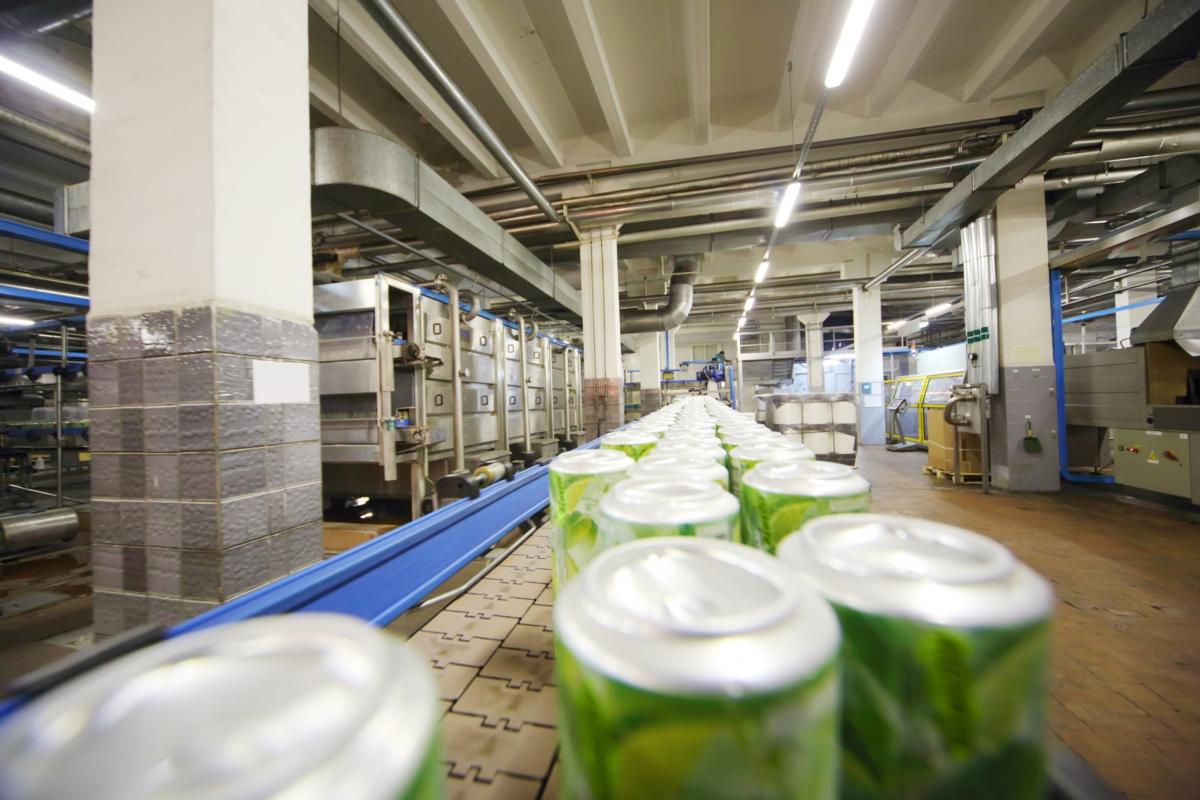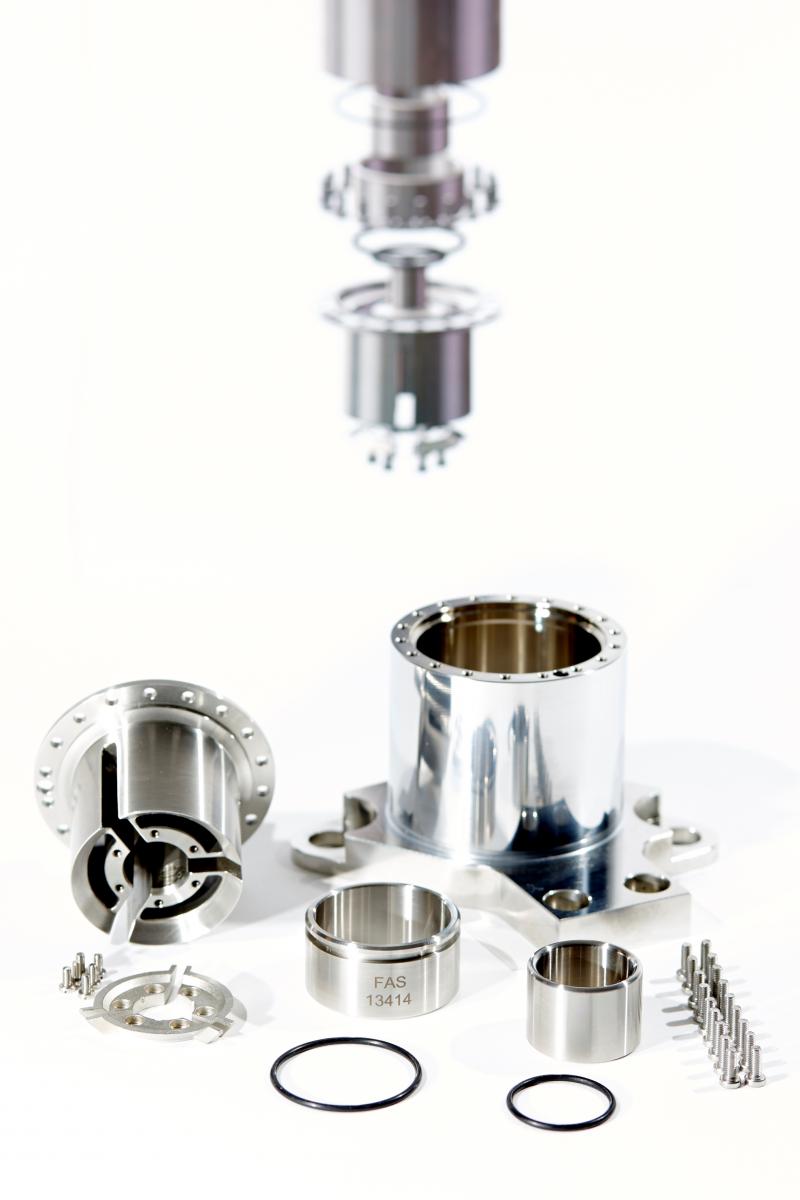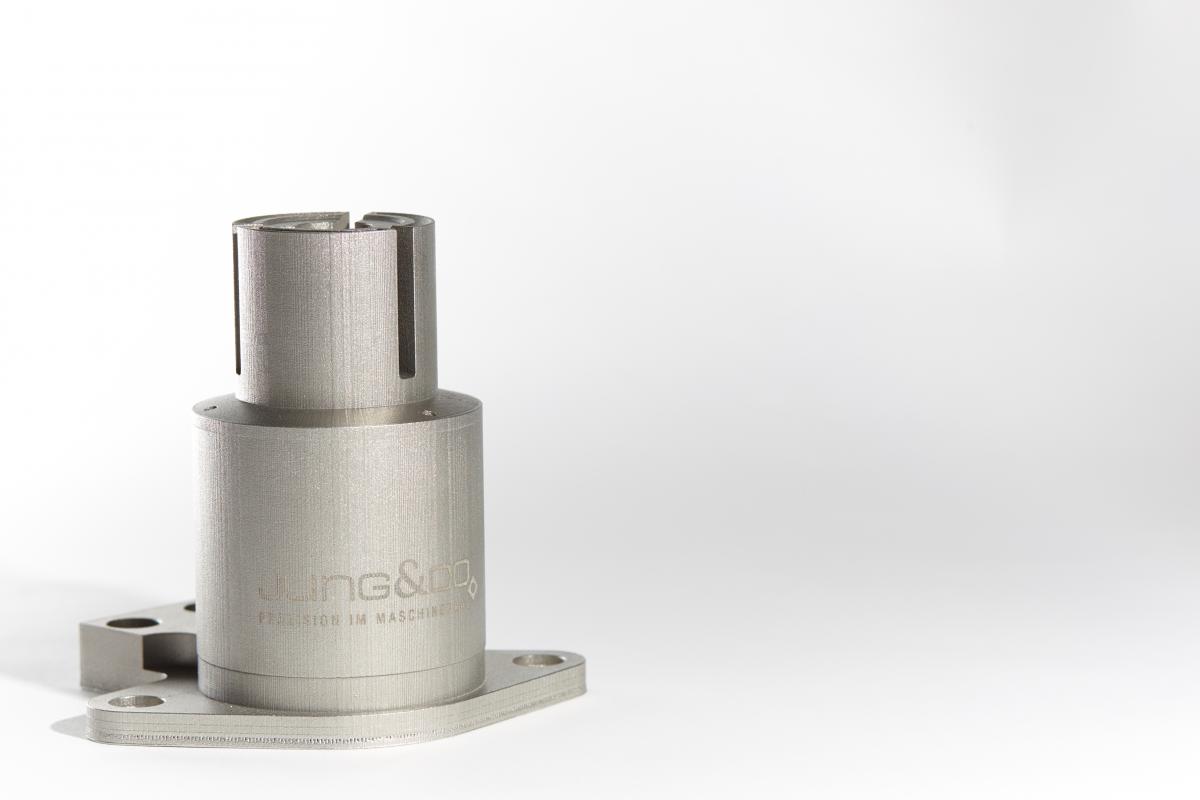USERS of 3D metal printing are increasingly discovering the new possibilities and freedoms offered by Additive Manufacturing. 3D designs are leading to new product solutions. Occasionally, manufacturing and logistics concepts are completely reconfigured. Jung & Co. Gerätebau GmbH, a specialist in stainless steel components, relies on Additive Manufacturing to ensure that spare parts for beverage filling plants are available more quickly. This approach is very popular in an industry in which “time is money” is more than just an empty phrase. This interview with Thomas Lehmann, Managing Director of Jung & Co., explains the application and the advantages of 3D metal printing.
When it comes to processing stainless steel/alloys, various aluminum alloys or titanium, there are good reasons to choose Jung & Co. The processor of stainless steel boasts material know-how, state-of-the-art CNC machines and provides support with expert advice. The service it offers includes efficient production planning and consistent quality assurance in order and subassembly production. It caters for an array of sectors ranging from the food and beverage industry, pharmaceuticals and chemical engineering, plant engineering, aviation through to the fossil fuels extraction industry. One specialty is the production of spare parts made of stainless steel for beverage filling plants.
Transfer of know-how delivers real synergies
At Jung & Co. the primary focus is on using stainless steel, aluminum and titanium as materials. This know-how has been transferred to numerous sectors over the course of 40 years. The traditional methods of machining have now been expanded to include additive manufacturing using the metal laser melting process. In production there is an M2 cusing Multilaser machine from Concept Laser. Thomas Lehmann says, “We deliver stainless steel solutions across all processes and consistently focused on the application. The parts or assemblies that we produce are conventionally machined, manufactured in hybrid fashion or completely additively. The customer receives a precision end product from one single source providing a full service.”
Example of the beverage industry
After its initial experiences of additive manufacturing, Jung & Co. went one step further. The magic phrase was “Spare parts on demand.” Mr. Lehmann says, “Initially our customers thought: What a crazy idea. Far too expensive. Won’t work. So we first had some persuading to do.” The concept of “spare parts on demand” caught on because the economic facts were undeniable. The idea of the Additive Manufacturing of spare parts for beverage filling plants caught on.

The overhaul of a modern high-performance filling plant must take place very quickly. Depending on the size and output of the entire filling line, an hour of lost production may cost from around €4,000.00 to around €30,000.00.
Beverage filling plants in constant use
A filling plant in the beverage industry should be renowned for its high availability. What is often important is the flexibility of the filling plant because different sizes of bottles or cans need to be filled. Filling plants need to perform the following tasks: supplying bottles or cans, filling them, sealing them and ultimately transferring them to the post-processing stations. Food law dictates that cleanliness and hygiene are the most important requirements. This is why stainless steel is one of the preferred materials used in the industry. Production rates of 40,000 – 80,000 bottles or cans per hour are not unusual. The industry “thrives” on speed. If a plant is shut down, its profitability quickly diminishes. Finding the fault, requesting a spare part, shipping and installing it – in a worst case scenario this can take a few days and result in delays to deliveries to the trade. Depending on the size and output of the entire filling line, an hour of lost production may cost from around €4,000.00 up to around €30,000.00. The filling company must then find some way of switching to other filling lines and then first adapt them to handle the particular bottles or cans. These are stressful situations for a production manager, and he and his team are of course keen to avoid them. “We said to customers: Things don’t need to be like this. Additively manufactured stainless steel parts can be printed as required and also have their design optimized. Most customers were initially disbelieving because we were presenting such a revolutionary idea,” explains Mr Lehman. In actual fact, Jung & Co. was quickly able to sell the idea of Additive Manufacturing to its long-standing customers in the beverage industry. He also cites the example of a can filler valve for beverage filling plants.

A conventionally manufactured can filler valve consists of seven assemblies, seals and screw connections, and takes a great deal of effort to assemble. Manufacturing the part by conventional means takes around 8-10 weeks including the procurement of the required precision cast part
Fewer parts in the assembly and high availability during use
Mr Lehmann, who engaged with the laser melting of stainless steel in collaboration with the technology pioneer Concept Laser at a very early stage, was clear: An additive solution can mean great freedom of geometry, coupled with a CAD design that suits the process. In addition, parts or entire assemblies can be created as a one-shot design. If the filling company requires a new can filler valve, the components can be manufactured promptly using CAD data and fitted at the customer’s premises so that the downtimes are drastically reduced. He says: “3D metal printing enables short machine downtimes for the beverage fillers that previously seemed impossible. A new 3D design and rapid availability saves the customer time and money.” The example he chose relates to a filler valve in a can filling plant. The production of spare parts for beverage filling plants is one of the specialties of the company from the German town of Pinneberg. Many of these spare parts are not standard components, but rather customer-specific solutions. If it is manufactured by conventional means, the assembly consists of seven components made of stainless steel 1.4404 which need to have the necessary seals added. The stainless steel parts had to be initially milled or turned with precision machining on CNC machines and then fitted manually. The assembly was then placed into storage so that – in the event of a failure – a quick response was possible and the filling plant could be back up and running again. “The can filler valve was redesigned so that it could be manufactured in one operation on an M2 cusing Multilaser machine. This means there is no longer any need for the seals and interfaces that are otherwise an inevitable consequence of the joining process. The fact that no assembly work is required is not only cheaper, but also saves time for our customers. Manufacturing of the part by conventional means takes around 8 – 10 weeks including the procurement of the required precision cast part, whereas the Additive Manufacturing takes around one week. In principle, this means we can manufacture spare parts on demand and then deliver them on time when the demand suddenly arises. The benefits that arise with such a precision part are extremely interesting for both us as the manufacturer and for our customers if the desire is to keep overhaul times or machine downtimes as short as possible.” In addition, spare parts do not need to be purchased in advance and kept in storage, thus tying up less capital.

An additively manufactured can filler can be manufactured in one operation, so without any assembly, and on demand in one week. Deployment at the plant operator is very prompt, and overhaul times are reduced significantly. The optimized additive part is also around 35 % lighter than the conventional one
New part solutions and high reproducibility
Nevertheless, the development of the assembly was a minor feat of endurance. The load demands of a highly dynamic filling plant are suitably challenging, as the staff at Jung & Co. are very well aware. This is why the can filler valve was subjected to intensive load tests. In addition, there were also topology optimizations and modifications to the design as well as investigations into the amount of reworking and the release of tension from the parts. “Part development is an exciting process. The development reveals new option paths which can be explored in a targeted way. The finished 3D part not only looks different to the conventional one, but is also around 35% lighter. But it is also usually capable of doing more, and this is very easy to factor into the price because what matters is what effects actually result overall in terms of time and money,” Mr Lehmann says. The additive approach ultimately results in overhauled solutions which can boost performance. According to Jung & Co., the possibilities are very diverse: It is possible to incorporate lightweight design approaches or functional integrations, such as cooling, temperature control or sensor technology. Hybrid approaches to manufacturing are also relevant. For example, simple geometric areas can be machined in a conventional way while complex geometric areas of a part can be additively manufactured. Another important point is the high reproducibility. Once process parameters have been found, they guarantee a consistent level of quality including the documentation that is also supplied. Thomas Lehmann: “The many different aspects of 3D metal printing demand an in-depth analysis of the performance requirements in a discussion with the customer. Talking to the customer reveals possible solutions which, adapted to the process, result in new solutions which can deliver more than the previous parts. The crucial factor when it comes to costs is ultimately what the part is capable of and how quickly it is available.” In the beverage industry, there was another key argument in favor of Additive Manufacturing for the filling companies: In the case of conventional cast parts made from stainless steel, cavities are not exactly popular in the food industry as they are a potential source of contamination. Thomas Lehmann: “Cavities are to be avoided in this particular application, which is another important benefit of the 3D metal printing process.”
Prospects for 3D metal printing at Jung & Co.
Additive Manufacturing has been added to the CNC manufacturing range at Jung & Co. since 2015. Additive manufacturing currently takes place on an M2 cusing Multilaser machine with 2 x 400 W laser sources from Concept Laser. There are plans to expand the production capacity because there is such great demand. “The demand for 3D-printed metal components is expected to rise steadily and stable. I am thrilled that many of our customers are recognizing the benefits of additive parts. But I am just as delighted that we in house are able to familiarize our own employees and in particular the apprentices with the new technology. As a medium-sized enterprise, gaining more expertise is always a vital argument when talking to customers,” Mr Lehman adds. In addition, Jung & Co. is also planning to purchase a mobile laser scanner in the coming year. This will enable the company to adopt a completely new approach in supplying spare parts rapidly to its customers. Laser measurement allows the relevant component that needs to be replaced to be digitized in situ in the customer’s machine. Once the corresponding 3D files have been sent to Jung & Co. online, the production on the laser melting machine can also commence there immediately in urgent cases. “Additive Manufacturing opens up a whole host of opportunities when it comes to delivering spare parts for filling machines in the beverage industry. A laser scanner is the next logical step toward full digitization of the process chain. It does of course also have the appeal that we detach ourselves a little from the element of time and space in the supply of spare parts.”
Nike Mens Shoes













